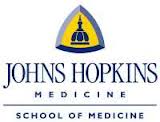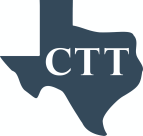Study of AGB101 in Mild Cognitive Impairment Due to Alzheimer's Disease
| Status: | Recruiting |
|---|---|
| Conditions: | Alzheimer Disease, Cognitive Studies, Cognitive Studies |
| Therapuetic Areas: | Neurology, Psychiatry / Psychology |
| Healthy: | No |
| Age Range: | 55 - 85 |
| Updated: | 4/4/2019 |
| Start Date: | January 15, 2019 |
| End Date: | November 2022 |
| Contact: | Clinical Development |
| Email: | clinical@agenebio.com |
| Phone: | (610) 964-2000 |
A Multicenter, Randomized, Double-blind, Placebo-controlled Study Evaluating the Efficacy and Safety of AGB101on Slowing Progression of Mild Cognitive Impairment Due to Alzheimer's Disease
The primary objective of the study is to evaluate the efficacy of AGB101 on slowing cognitive
and functional impairment as measured by changes in the Clinical Dementia Rating-Sum of Boxes
(CDR-SB) score as compared with placebo in participants with mild cognitive impairment due to
Alzheimer's Disease (MCI due to AD) also known as prodromal AD. Participants will be
randomized to receive placebo or AGB101 (220 mg), once daily for 78 weeks. Secondary
objectives are to assess the effect of AGB101 compared with placebo on clinical progression
as measured by Mini-Mental State Examination (MMSE) and Functional Activities Questionnaire
(FAQ).
and functional impairment as measured by changes in the Clinical Dementia Rating-Sum of Boxes
(CDR-SB) score as compared with placebo in participants with mild cognitive impairment due to
Alzheimer's Disease (MCI due to AD) also known as prodromal AD. Participants will be
randomized to receive placebo or AGB101 (220 mg), once daily for 78 weeks. Secondary
objectives are to assess the effect of AGB101 compared with placebo on clinical progression
as measured by Mini-Mental State Examination (MMSE) and Functional Activities Questionnaire
(FAQ).
Inclusion Criteria:
1. Subjects between 55 and 85 years old (inclusive) in good general health:
1. Willing and able to consent and participate for the duration of the study
2. Have eighth-grade education or good work history sufficient to exclude mental
retardation
3. Have visual and auditory acuity adequate for neuropsychological testing
4. Have proficient fluency of the native local language to participate in all the
neuropsychological test assessments
2. Have a study partner who has sufficient contact with the subject to be able to provide
assessment of memory changes, who can accompany the subject to all the clinic visits
for the duration of each visit, and who is able to provide an independent evaluation
of the subject's functioning
3. Have MCI due to AD as defined by all of the following criteria and consistent with the
National Institute on Aging-Alzheimer's Association criteria:
1. MMSE scores between 24 and 30 (inclusive; exceptions may be made for subjects
with <8 years of education at the discretion of the sponsor)
2. A memory complaint reported by the subject or his/her study partner
3. Evidence of lower memory performance based on delayed recall in the International
Shopping List Test (ISLT)
4. A clinical dementia rating (CDR) score of 0.5 with a memory box score of ≥0.5
5. Essentially preserved activities of daily living
6. Cognitive decline not primarily caused by vascular, traumatic, or medical
problems (alternative causes of cognitive decline are ruled out)
4. Permitted medications:
1. With potential pro-cognitive effects, such as cholinesterase inhibitors and
memantine, must be at a stable dose for ≥3 months prior to screening and remain
stable throughout the study; estrogen replacement therapy, Ginkgo biloba, and
vitamin E must be at a stable dose for ≥4 weeks prior to screening and remain
stable throughout the study
2. Other psychotropics, such as antidepressants and antipsychotics, must be at a
stable dose for ≥3 months prior to screening and remain stable throughout the
study
5. Willing and able to undergo imaging procedures:
1. A Positron Emission Tomography (PET) scan with Florbetaben(an 18F isotope
diagnostic agent) or documented evidence of an amyloid positive PET scan.
The Florbetaben scan performed at baseline must be read by a qualified physician
with experience in reading amyloid PET scans, and it should be consistent with
the presence of amyloid plaques.
2. Repeated MRI scans (3 Tesla) with no contraindications to MRI. MRI scan results
are consistent with the diagnosis of amnestic MCI due to Alzheimer's disease with
no clinically significant findings of non-AD pathology that could account for the
observed cognitive impairment.
6. Willing to allow collection of blood for apolipoprotein E (ApoE) genotyping.
Exclusion Criteria:
1. Use of anticonvulsant medications or excluded psychotropic medications within 3 months
prior to the baseline visit
2. Participation in a therapeutic clinical study for any medical or psychiatric
indications within 3 months (6 months for biologics) of the screening visit, or at any
time during the study.
Subjects must understand that they may only enroll in this clinical study once; they
may not enroll in any other clinical study while participating in the current study,
and they may not participate in a clinical study of a drug, biologic, therapeutic
device, or medical food, in which the last dose/administration was received within 3
months (6 months for biologics) prior to screening.
3. History of hypersensitivity or lack of tolerability to AGB101 (levetiracetam)
4. Severe renal impairment (creatinine clearance of <30 mL/minute) or undergoing
hemodialysis
5. Any significant neurological disease other than suspected incipient AD, such as
Parkinson's disease, multi-infarct dementia, Huntington's disease, normal pressure
hydrocephalus, brain tumor, progressive supranuclear palsy, seizure disorder (lifetime
history; infant febrile seizures are not exclusionary), subdural hematoma, multiple
sclerosis, or history of significant head trauma followed by persistent neurologic
deficits, or known structural brain abnormalities
6. Presence of pacemakers, aneurysm clips, artificial heart valves, ear implants, metal
fragments, or foreign objects in the eyes, skin, or body
7. Diagnosis of major depression or bipolar disorder, as described in the Diagnostic and
Statistical Manual of Mental Disorders, 5th Ed (DSM-5), within the past 3 years.
Psychotic features, agitation, or behavioral problems within the last 3 months that
could lead to difficulty complying with the protocol. Subjects must not have a major
depressive disorder or other types of depression that could confound diagnosis of MCI
due to AD, or clinical assessments, in the opinion of the investigator. The geriatric
depression scale (long form score >9 suggests depression) results should be reviewed
by the investigator to assist in this determination.
8. Modified Hachinski Ischemic Scale (HIS) score >4
9. History of schizophrenia (DSM-5 criteria)
10. History of alcohol or substance abuse or dependence within the past 3 years (DSM-5
criteria)
11. Any significant systemic illness or unstable medical condition that could lead to
difficulty in complying with the protocol requirements.
12. Clinically significant abnormalities in B12 or thyroid function test that might
interfere with the study.
A low B12 (below normative range for elderly) is exclusionary, unless follow-up labs
(homocysteine and methylmalonic acid) indicate that it is not physiologically
significant. If the B12 deficiency is treated, subjects may become eligible to
participate in the study.
13. Residence in a skilled nursing facility. Individuals in independent living
communities, assisted living facilities, residential care facilities, or continuing
care communities are eligible provided they engage in a sufficient spectrum of
activity to permit assessment of all 6 domains contributing to the CDR-SB. Individuals
in these facilities must also have a caregiver who has the ability to observe the
subject during the study and can participate in clinical evaluations.
14. Any use of excluded medications (e.g., antiepileptics, certain antidepressants or
antipsychotics, antihistamines with anticholinergic properties, opiates)
15. Participation in clinical studies using the ISLT, Behavioral Pattern Separation
(BPS-O) task, or the trail making test (A, B) within 1 month of screening
16. Female subjects must not be pregnant, lactating, or of childbearing potential (i.e.,
they must be 2 years post menopause or surgically sterile)
We found this trial at
13
sites
Click here to add this to my saved trials
Click here to add this to my saved trials
Click here to add this to my saved trials
Click here to add this to my saved trials
733 North Broadway
Baltimore, Maryland 21205
Baltimore, Maryland 21205
(410) 955-3182

Phone: 410-614-3040
Johns Hopkins University School of Medicine Johns Hopkins Medicine (JHM), headquartered in Baltimore, Maryland, is...
Click here to add this to my saved trials
Click here to add this to my saved trials
Click here to add this to my saved trials
Click here to add this to my saved trials
Click here to add this to my saved trials
Click here to add this to my saved trials
Click here to add this to my saved trials
Click here to add this to my saved trials
Tampa, Florida 33613
Phone: 813-974-2832
Click here to add this to my saved trials
